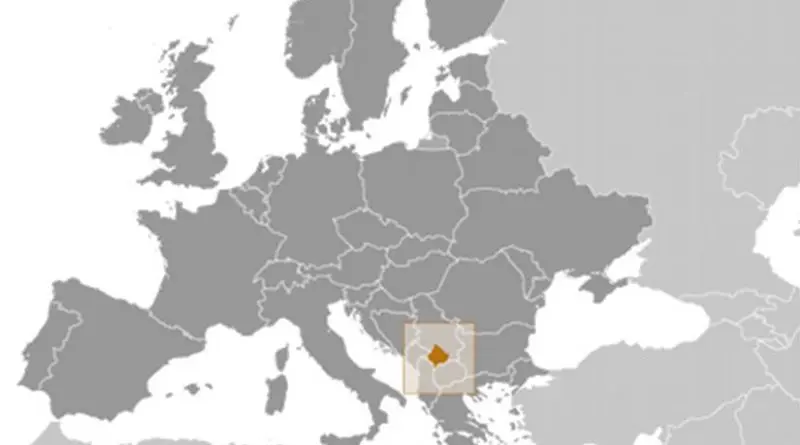Kosovo Delays Border Deal Vote Until Wednesday
By Die Morina
Isa Mustafa’s government is delaying sending the controversial Montenegrin border agreement to parliament until an opposition no-confidence vote has been dealt with.
Kosovo’s government has postponed sending the controversial agreement on border demarcation with Montenegro to parliament for a vote until Wednesday.
Prime Minister Isa Mustafa delayed the vote after a meeting with the speaker of parliament, Kadri Veseli, and the US ambassador Greg Delawie.
The extra time will allow parliament to first vote on the motion of no-confidence initiated by the opposition Nisma party.
The government on Monday announced that, after the discussions with its coalition partners, Mustafa’s Democratic League of Kosovo, LDK, and Veseli’s Democratic Party of Kosovo, PDK, they had agreed that “the government meeting to decide on proceeding with the draft law for ratification of the agreement on border demarcation will be held after … the parliamentary session set for Wednesday”.
The opposition Vetevendosje party called the decision a climb-down. “The government did not have the courage to bring the agreement to the assembly,” the leader of Vetevendosje, Visar Ymeri, claimed.
“Ongoing disagreements [over the border agreement] show that the government know that this agreement is wrong,” he added.
Mustafa had earlier said the government would send the disputed agreement to parliament on Monday.
The opposition Vetevendosje, Alliance for the Future of Kosovo, AAK and Nisma parties have continuously opposed the deal with Montenegro since it was signed in August 2015.
They claim it robs Kosovo of substantial amounts of land on the border between the two countries. They remain committed to opposing the agreement whenever it comes to parliament.
“I am convinced the demarcation [deal][ will fall, together with the government,” the chief of the Vetevendosje parliamentary group, Glauk Konjufca, told a press conference.
“As the AAK, it is clear from our side that we will oppose this, and we will take any democratic action not to allow ratification of an agreement that is to the detriment of Kosovo,” Pal Lekaj from the AAK told the television station KTV.
The three opposition parties have announced that they also will call on people to protest when the demarcation agreement is voted on in parliament.
The ruling coalition, comprising the PDK and LDK, is not guaranteed sufficient votes to approve the border deal because, as well as the opposition parties, which all oppose the deal, some MPs from the ruling coalition are also against it. For the agreement to be ratified, 80 out of 120 MPs must vote in favour.
The deal was set to be put to a vote in parliament on September 1 last year, but amid fierce opposition protests outside the building, Mustafa withdrew it from the agenda.
The motion of no confidence in the government, which is set to be voted on by MPs on Wednesday, may well decide the fate of the ruling coalition under Mustafa.
The European Union has put ratification of the controversial border agreement with Montenegro at the top of its conditions for visa liberalisation. Kosovo officials have faced strong international pressure to push the deal through.

